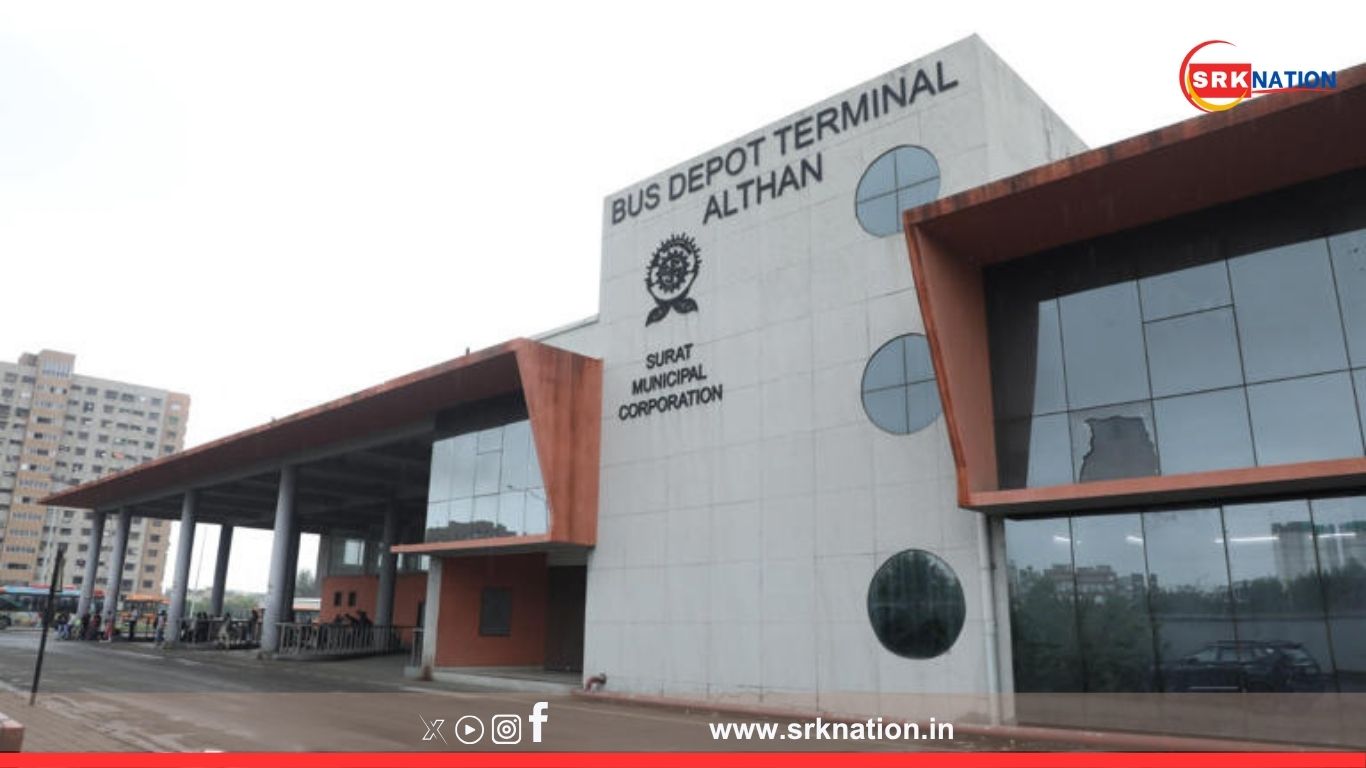In a pioneering step towards urban sustainability and commuter comfort, Surat Municipal Corporation (SMC) has launched India’s first solar-powered smart bus stand equipped with free Wi-Fi, mobile charging points, real-time bus arrival displays, and other digital amenities. The facility, inaugurated on Monday, is located at Adajan area in Surat, Gujarat, and is set to transform daily travel experiences for thousands of commuters.
Key Features of Surat’s Solar Smart Bus Stand
The newly unveiled smart bus stand integrates clean energy solutions and digital public utility services, representing a leap in smart city infrastructure. Major features include:
- Rooftop solar panels to power lighting, display boards, and charging stations, reducing dependence on grid electricity.
- Free high-speed Wi-Fi connectivity for commuters.
- Multiple USB charging ports and charging stations for phones and electronic devices.
- LED display screens showing real-time bus arrival and departure timings.
- GPS integration for live location tracking of buses.
- CCTV surveillance for enhanced commuter safety.
- Comfortable seating with modern shelter design protecting passengers from heat and rain.
First-of-its-kind in India
While metro cities have launched digital bus queue shelters and Wi-Fi-enabled stops, Surat’s initiative is the first fully solar-powered smart bus stand integrating energy efficiency, digital services, and commuter-centric design.
Statements by Surat Municipal Corporation
Commissioner Shalini Agrawal, during the inauguration, said:
“This solar smart bus stand is a step towards our vision of making Surat a clean, green, and smart city. It will reduce carbon footprint, promote solar energy usage, and provide comfortable, tech-enabled facilities to citizens.”
She added that similar smart stands are planned across 50 key bus stops in the city within the next two years under the Smart City Mission.
Sustainability and Environmental Benefits
The bus stand’s rooftop solar system has:
- Installed capacity: 5 kW, generating approximately 20 units per day.
- Annual carbon emission savings: Over 7,000 kg CO2, equivalent to planting more than 300 trees.
This aligns with Surat’s climate action goals of increasing renewable energy share and public transport utilisation to tackle air pollution and urban heat island effects.
Public Reaction: Commuter Delight
Daily commuters welcomed the new facility, highlighting:
- Availability of charging points for low-battery phones during emergencies.
- Free Wi-Fi enabling students and professionals to stay connected.
- Shade and clean seating making wait times comfortable in extreme heat.
Rina Patel, a college student, said:
“Earlier we had to stand in the sun with no information about bus timings. This smart stand with real-time updates and Wi-Fi is a big relief.”
Smart City and Urban Transport Integration
Surat is among India’s fastest-growing cities with a population of over 7 million and heavy reliance on public buses for daily commutes. The solar smart bus stand is integrated with:
- Surat’s Bus Rapid Transit System (BRTS).
- The upcoming Surat Metro Rail connectivity, ensuring seamless multimodal transport for the city’s working population.
Future Plans for Smart Bus Stands in Surat
| Feature | Expansion Plan |
|---|---|
| Number of smart bus stands | 50 across city major junctions by 2026 |
| Energy source | All to be powered by rooftop solar |
| Digital amenities | Real-time displays, Wi-Fi, CCTV, charging points |
| Sustainability goals | Promote renewable energy in public infrastructure, reduce grid load |
Funding and Implementation
The project is implemented under the Surat Smart City Development Limited (SSCDL), jointly funded by:
- Surat Municipal Corporation
- Central government’s Smart Cities Mission
- Public-private partnerships for equipment and technology integration
Impact on Urban Mobility
Urban planners note that:
- Digitalised bus stands improve predictability and efficiency of public transport, increasing commuter satisfaction.
- Solar integration reduces operational costs for civic bodies while promoting India’s rooftop solar targets under the National Solar Mission.
- Wi-Fi and digital facilities enhance social equity by benefiting lower-income commuters without mobile data access.
Challenges Ahead
Experts caution about:
- Regular maintenance of electronic equipment and solar panels.
- Ensuring cybersecurity for public Wi-Fi networks.
- Timely expansion to underserved areas to prevent digital infrastructure disparity.
Statements from Ministry of Housing and Urban Affairs
Officials from the central Smart City Mission congratulated Surat for its innovation, stating:
“Surat has shown how smart city solutions can integrate clean energy, commuter comfort, and digital public utility services to set benchmarks for other Indian cities.”
Other Smart Initiatives by Surat
Apart from the solar smart bus stand, Surat has implemented:
- Smart traffic management system using AI-based surveillance.
- Riverfront development projects integrating public spaces with environmental conservation.
- Digital property tax payment platforms enhancing governance efficiency.
Conclusion
The launch of India’s first solar smart bus stand in Surat signifies a progressive step towards energy-efficient, commuter-friendly urban transport infrastructure. As cities grapple with pollution, traffic congestion, and public amenity gaps, integrating renewable energy with smart facilities offers a sustainable pathway for urban mobility transformation.
Disclaimer: This news report is based on official statements from Surat Municipal Corporation, commuter interviews, and Smart City Mission documents. Readers are advised to follow SMC updates for expansion schedules and service availability in their localities.











